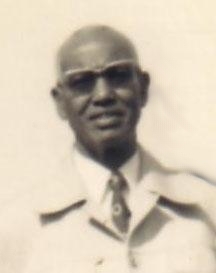
Ismaïl Omar Guelleh is the current President of Djibouti, in office since 1999. He is often referred to in the region by his initials, IOG.
The Movement for Democratic Renewal and Development, is a political party in Djibouti. It was originally known as the Party for Democratic Renewal. The PRD of Djibouti was created with the purpose of forming a national democratic party. The PRD gained popularity at the collapse of the communist bloc and the end of the Cold War. It used its military power gained through its coalition with the Front for the Restoration of Unity and Democracy (FRUD) and the Movement for Peace and Reconciliation (MPR). The current leader of PRD is Abdillani Hamariteha.
The National Democratic Party is a political party in Djibouti. It was founded as an opposition party in 1992 by Aden Robleh Awaleh, who remains the party's president. It was part of the ruling coalition in 2005, but has since rejoined the opposition against President Ismaïl Omar Guelleh.

Hassan Gouled Aptidon was the first President of Djibouti from 1977 to 1999.

National-level elections in Djibouti are held for the President and the unicameral National Assembly.

The National Assembly, formerly known as the Chamber of Deputies, is the unicameral legislative branch of the government of Djibouti.
The Djibouti Party for Development is a political party in Djibouti, led by Mohamed Daoud Chehem. In the parliamentary election held on 10 January 2003, the party was part of the Union for a Democratic Change, which won 37.3% of the popular vote but no seats in the National Assembly. It is also aligned with the Union for National Salvation.
The Djibouti Union for Democracy and Justice is a political party in Djibouti. In the parliamentary election held on 10 January 2003, the party was part of the Union for a Democratic Change, which won 37.3% of the popular vote but no seats in the National Assembly.
Idriss Arnaoud Ali was a Djiboutian politician who was President of the National Assembly of Djibouti from 2003 to 2015. He was also the Secretary-General of the People's Rally for Progress (RPP) from 2003 to 2012.
Ali Mohamed Daoud, also known as Jean-Marie, is a Djiboutian politician and the President of the Front for the Restoration of Unity and Democracy (FRUD). He is currently a member of the National Assembly of Djibouti.

Presidential elections were held in Niger on 27 February 1993, with a second round on 27 March after no candidate passed the 50% barrier in the first round. They were the first multi-candidate presidential elections held in the country since independence in 1960, following constitutional changes approved in a referendum the previous year. Although Mamadou Tandja of the ruling National Movement for the Development of Society won the most votes in the first round, he lost in the second round to Mahamane Ousmane of the Democratic and Social Convention party. Voter turnout was only 32.5% in the first round and 35.2% in the second.

The 2005 Djiboutian presidential election took place on the 8 April 2005. The incumbent President of Djibouti, Ismail Omar Guelleh, was re-elected to a second six-year term in an unopposed election.

The 2003 Djiboutian parliamentary election took place in Djibouti on 10 January 2003 to elect the National Assembly of Djibouti. The ruling coalition of President Ismail Omar Guelleh won all 65 seats in the election defeating an opposition coalition.

General elections were held in Djibouti on 24 April 1987 to elect a President and National Assembly. In the presidential election the only candidate was incumbent Hassan Gouled Aptidon of the People's Rally for Progress, the country's sole legal party. He was re-elected with 99.23% of the vote. In the National Assembly elections the RPP put forward a list of 65 candidates for the 65 seats, which was approved by 98.6% of voters with a turnout of 88.69%.

Parliamentary elections were held in Djibouti on 21 May 1982. They were first elections for the National Assembly since independence in 1977, and were open only to the People's Rally for Progress, which had become the country's sole legal party the previous year. The RPP put forward a list of 65 candidates for the 65 seats, which was approved by 100% of voters with a turnout of 92.4%.

Parliamentary elections were held in Djibouti on 18 December 1992. They were the first elections following a referendum in September that reintroduced multi-party democracy, albeit with a limit of four parties, although they were boycotted by the Front for the Restoration of Unity and Democracy. The ruling People's Rally for Progress won 75% of the vote and all 65 seats in the National Assembly. Voter turnout was only around 48.5%, as many Afars did not vote.

Parliamentary elections were held in Djibouti on 22 February 2013. After their boycott of the 2008 elections, opposition groups contested the elections as the Union for National Safety alliance.

Parliamentary elections were held in Djibouti on 23 February 2018. The election was boycotted by the main opposition parties, including some of the parties in the Union for National Salvation coalition, which had won 10 seats in the previous elections in 2013.








